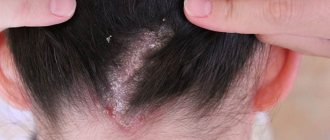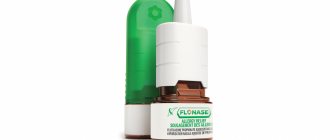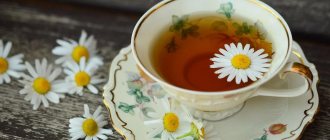In modern realities, many are interested in the question: how to cleanse the lungs? Even if you don’t smoke or suffer from respiratory diseases, cleansing your lungs will still have a beneficial effect on your health. This is especially useful for residents of large cities where the air is polluted by industrial waste. If you smoke or suffer from asthma or allergies, cleansing your lungs is even more important.
The surface area of the lungs is 40 times greater than that of your skin. They consist of a spongy material that is characterized by elasticity and permeability. You can live with one lung, but those who have had a lung removed will tell you that the quality of life after such an operation changes for the worse.
Inside each lung are air tubes called bronchioles. They are connected to each other through the bronchial trees. At the end of each tree branch are small air-filled sacs called alveoli. White blood cells in the alveoli filter irritants that come in the inhaled air.
The lungs work continuously, inhaling and filtering oxygen. It is transported into the circulatory system and distributed throughout the body with hemoglobin in red blood cells. The lungs expand and contract up to 20 times every minute without interruption. Therefore, it is worth taking care of them.
| The article was verified by medical expert Vladimir Aleksandrovich Plisov |
Common lung diseases
Asthma
Asthma is a disease in which there is chronic inflammation of the bronchi, narrowing of the passages and restriction of breathing. Asthma can be caused by external factors such as seasonal allergies or stress. The World Health Organization (WHO) estimates that approximately 300 million people worldwide suffer from asthma, and the number of sufferers is steadily increasing every year. Asthma is a chronic and currently incurable disease. An asthma attack can be fatal in some cases.
Signs of cleansing
A typical sign of systematic cleansing of the body is a constant cough and sputum discharge. In this way, the body tries to cleanse the inner surface of the lungs and bronchi from harmful deposits.
Over time, the cough decreases and breathing becomes easier. It becomes easier to wake up in the morning, and a good appetite returns. In addition, mood swings may occur throughout the cleansing period. They should not be considered an anomaly and if they occur, you should simply try to smooth them out by taking specialized medications, long walks, breathing exercises, etc.
Harmful effects on the lungs
There are many toxins in the environment, including the air we breathe. Bacteria, viruses, dust, pollution from cars and factories, chemicals from other sources, and toxins from mining constantly surround most people on the planet. This is especially true for those who live in cities and densely populated areas and people often wonder how to clean their lungs at home? Urban residents are significantly more likely to develop problems with the respiratory system and lungs. Rural residents are also exposed to toxins, particularly through chemicals applied to crops.
In addition, many products used in the home can interfere with the normal functioning of the lungs. Common irritants include household cleaners, talc, fabric softeners, cologne, air fresheners, scented candles, dust and pet dander.
Indoor air can be as significant a cause of intoxication as outdoor air. A variety of toxins negatively affect not only the lungs, but also the brain.
These are not all pulmonary irritants. People who work with hazardous substances such as asbestos and coal are at much greater risk of developing chronic lung disease. In addition, some types of mold can cause infection and, as a result, bleeding in the lungs if spores are regularly inhaled. Exposure to radon is extremely dangerous and affects more than just miners: it is the second leading cause of lung cancer (after cigarettes).
In light of this, keeping your lungs in good condition is vital. How to clean your lungs at home? This is where natural remedies come to the rescue to help cleanse your lungs at home.
To support our lungs, we can use some medicinal herbs. These natural remedies will help cleanse our respiratory system. Some of them are common houseplants that help cleanse the body.
What happens after quitting smoking?
With prolonged smoking, the smoker’s body gets used to a constant dose of toxic substances. After a person stops smoking, the balance of metabolic processes is temporarily disrupted. It takes from a couple of weeks to several months for the body to rebuild itself again.
This process may be accompanied by unpleasant symptoms, including:
- deterioration of immune defense;
- disturbances in the functioning of the digestive and respiratory systems;
- frequent mood swings, nervousness;
- increase in body weight.
How to cleanse your lungs at home - 20 natural recipes
Use filtered water and quality ingredients to prepare medications.
Mullein tea
Mullein leaves and flowers are used to treat lung diseases, including asthma and bronchitis. The biologically active substances of the plant promote detoxification, improve the condition of bronchioles (air tubes in the lungs) and are effective natural expectorants.
Homemade recipe
Ingredients:
- 2 teaspoons dried mullein;
- 100 ml (1/2 cup) filtered water;
- 1 teaspoon dried mint (optional);
- 1-2 teaspoons honey (optional);
Preparation:
- Boil water and add mullein leaves.
- Add mint if necessary.
- Leave for 15 minutes. If you like, add honey to taste.
2. Tea with eucalyptus
Eucalyptus oil contains a natural antibiotic called cineole. The compound also has antiviral and antifungal properties.
In addition to the antimicrobial effect, eucalyptus has immunostimulating, anti-inflammatory, antioxidant, analgesic and antispasmodic effects.
Used by steam inhalation or orally will provide benefits for a variety of lung problems such as bronchitis, asthma and chronic obstructive pulmonary disease.
Eucalyptus relaxes and expands the lungs and bronchioles, relieving tension and discomfort. It is a natural remedy for respiratory infections and helps cleanse the lungs.
Use small amounts of eucalyptus at a time, as overdosing may cause nausea or diarrhea. Half a teaspoon per cup is all you need.
Pregnant and breastfeeding women and people with liver or gastrointestinal diseases should not take eucalyptus by mouth. Instead, inhale eucalyptus steam for healing and to cleanse the lungs.
How to make tea with eucalyptus
Ingredients:
- 1/2 teaspoon dried eucalyptus leaves;
- 1 glass of boiling water;
- honey to taste.
How to prepare and take:
- Pour boiling water over the eucalyptus leaves, cover and wait 10 minutes.
- Add honey to taste (optional).
- Drink up to 3 glasses a day.
Lungwort tea
The use of this plant has a beneficial effect on the lungs. Lungwort is used to treat bronchitis, asthma and other lung diseases when taken orally. It also helps against some stomach and intestinal diseases and kidney and urinary tract problems. Additionally, a compress can be used to relieve discomfort from eczema, burns, and hemorrhoids.
Pour 1 cup of boiling water into 1 teaspoon of dried lungwort and leave for 15 minutes.
Drink several cups a day to reduce inflammation of the lungs and speed up the process of repair of affected tissues.
Oregano tea
Carvacrol contained in oregano prevents the development of congestion in the lungs. An antiviral, antibacterial and antifungal herb, oregano also contains antioxidants that reduce the so-called. "oxidative stress".
Ingredients:
- 4-6 tablespoons fresh or dried oregano;
- 100 ml (1⁄2 cup) water;
- 1 tablespoon honey.
How to prepare and use:
Crush fresh oregano leaves to release the essential oil they contain. Skip this step if using dried oregano.
- Add oregano to boiling water and stir for at least 5 minutes.
- Drink it hot and inhale the steam between sips.
Plantain leaves
Plantain leaves stimulate mucus production, making them an excellent remedy for dry coughs or throat irritations, and helps cleanse the lungs. Research has shown that plantain leaves are very effective against bronchitis. They do not contain potent components, so they can be used to treat children.
Plantain can be found near houses or on roadsides; This is one of the most affordable home remedies for lungs. In addition, plantain supports the immune system, which is very important if you are fighting an infection.
Recipe:
- Pour 1 cup of boiling water over 3-4 tablespoons of dried plantain (or 1⁄4 cup of fresh leaves).
- Stir, let sit for 15-20 minutes and drink.
6. Elecampane syrup
The next homemade herbal remedy that will help cleanse the lungs is prepared using elecampane. This plant is an effective remedy for cleansing the lungs. Used in ancient and oriental medicine to treat bronchitis and asthma, elecampane root is an effective natural expectorant. It contains inulin (a detoxifying agent) which coats and soothes the bronchioles so they can relax. The substance relieves wheezing and coughing.
Elecampane is not recommended for pregnant women!
How to make syrup from elecampane roots
Ingredients:
- 2 tablespoons of dried elecampane roots;
- 2 cups of water;
- honey;
- lemon juice.
Recipe and instructions for use:
- Bring water to a boil in a saucepan.
- Add elecampane and simmer it for 20 minutes over low heat.
- Once the volume of the liquid is reduced by half, strain and squeeze out all the liquid from the plant.
- Add honey and lemon to taste and cool.
- Store remaining syrup in the refrigerator for up to 6 months.
- For children under 14 years of age, give 2/3 teaspoon every two hours (dosage for older adults is 2 teaspoons).
7. Lobelia tincture
Lobelia (Lobelia inflata) is a medicinal herb also called Indian tobacco. It can be used as a tobacco substitute to help quit smoking. Lobeline is a substance in lobelia that is a mild psychostimulant. It works almost the same way as nicotine, but is not addictive. Lobelia also has an expectorant effect, which helps clear the lungs.
Lobelia causes vomiting while removing toxins. Because of this, the herb is potentially dangerous in large doses. It is advisable that you take it only under the supervision of a doctor!
Chaparral tea
Attention! This herb is not recommended for long-term use or for people with liver disease.
Chaparral relieves lung irritation and reduces the effects of histamine, making it extremely useful for bronchitis and colds. Additionally, this plant contains an antioxidant substance called NDGA, which reduces the ability of abnormal (cancer) cells to divide.
Chaparral, like tea, is a natural expectorant.
To prepare the tea, pour 5 heaped tablespoons of dried chaparral leaves and stems with a liter of boiling water.
Inhalation with peppermint essential oil
Menthol is a compound in peppermint that is an antispasmodic and anti-inflammatory agent. Thus, it improves airway patency and cleanses the lungs. Peppermint steam clears the lungs of excess mucus and toxins contained in it, promoting detoxification of the body. In fact, it is one of the best essential oils for colds.
To inhale, pour boiling water into a large glass bowl and add 3 drops of peppermint essential oil. Cover your head with a towel so that the steam does not escape in vain.
Don't put your face too close to boiling water!
Close your eyes and inhale the steam until it dissipates. Blow your nose regularly to get rid of mucus.
Osha root
This herb has been used by Native Americans for centuries and acts as a natural cough remedy. The roots contain camphor, a natural expectorant. Osha root improves microcirculation in the lungs, facilitates breathing and removes tobacco smoke toxins.
Due to its camphor content, osha root should not be used continuously for long periods of time as it may damage the liver. Pregnant and breastfeeding women should not use osha root, as its active substances can stimulate uterine contractions.
Hawthorn infusion to cleanse the lungs
Hawthorn is a well-established herb for supporting heart health. Hawthorn berries contain antioxidants that are anti-inflammatory, antimicrobial and improve blood circulation. These qualities help to cleanse the lungs well.
Do not use hawthorn if you are taking heart medications or blood thinners.
Ingredients:
- 30 grams of dried hawthorn;
- 4 cups boiling water.
How to prepare and eat:
- Pour boiling water over the hawthorn and leave for 48 hours.
- Strain, squeeze and drink warm or cold.
12. Thyme syrup
Thyme is traditionally used to prepare products with expectorant, mucolytic, antitussive and antispasmodic properties. Thyme extract may be effective in treating chronic inflammatory diseases in which hypersecretion of mucus obstructs the passage of air through the respiratory tract. Moreover, thyme extract has proven its effectiveness as an additional remedy in the complex therapy of lung cancer.
Thyme syrup to help cleanse your lungs
Ingredients:
- 60 to 120 grams of thyme leaves and flowers (fresh is better than dry);
- 1 liter of water;
- 1 cup of honey.
How to make syrup:
- Combine thyme and water in a small saucepan and place over low heat.
- Boil until the volume of liquid is reduced by half. There should be about 2 cups of strong thyme infusion left.
- Strain, cool slightly and add honey.
- Stir. You can store the drug in a glass jar in the refrigerator for 3-4 weeks.
- Take 1/2 to 1 teaspoon every couple of hours until symptoms subside.
Sage tea
This herb prevents the development of lung cancer and the appearance of metastases in other organs. Therefore, people whose lungs are particularly at risk (smokers and those exposed to hazardous substances) will especially benefit from consuming sage. The many aromatic oils in sage open up your sinuses and reduce mucus buildup in your lungs. They soothe coughs and reduce the intensity of sore throat during colds, helping to cleanse the lungs.
Rich in antioxidants, sage also regulates blood cholesterol levels.
How to Make Sage Tea to Cleanse Your Lungs
Ingredients:
- 1 glass of water;
- 2 tablespoons fresh sage leaves (or 1 teaspoon dried);
- 1 teaspoon buckwheat honey.
Recipe and instructions for use:
- Boil water and pour into a teapot with sage
- Wait about 10 minutes, stirring occasionally.
- Pour tea into a mug and sweeten with honey to taste.
- Take no more than 3 cups per day.
14. Licorice root
Licorice root contains glycyrrhizic acid, which is an antiviral substance. Other phytochemicals present in the root have anti-inflammatory, antibacterial and antifungal properties. Licorice contained in licorice can relieve inflammation of the mucous membranes and lung tissue.
Attention! Pregnant women and people with hypertension or kidney disease should avoid consuming licorice root preparations. Do not drink licorice tea daily for more than 7 days in a row.
How to make licorice tea
Ingredients:
- 1 teaspoon dried licorice root;
- 120 grams of water.
Cooking instructions:
- Bring water to a boil in a small saucepan.
- Remove the container from the heat and add the licorice root.
- Let sit for 10 minutes.
- Drink it hot and breathe in the steam as you drink.
Coltsfoot tincture
Coltsfoot flowers are very similar to dandelions. Coltsfoot effectively treats bronchitis, pneumonia, asthma and tuberculosis. In particular, it is great for reducing inflammation. However, it is better not to use it for a long time.
How to make coltsfoot tincture to cleanse the lungs
- Cut flowers and leaves into small pieces.
- Fill a glass jar with chopped coltsfoot.
- Fill with 80-96% alcohol and close tightly.
- Place in a cool, dark place.
- After six weeks, filter.
- Place in a dark glass bottle with a tight lid.
- Take 2-4 ml per day.
Fenugreek and dandelion tea
Fenugreek soothes sore throats due to its anti-inflammatory properties. It also thins mucus and can clear the lungs. Dandelion, in turn, helps detoxify the lungs, liver and kidneys.
How to make fenugreek and dandelion tea
Ingredients:
- 6 parts mullein leaves;
- 1 part fenugreek seeds;
- 1 part dandelion root.
Cooking instructions:
- Combine all herbal ingredients in a glass jar with a lid and shake to mix.
- Pour 1 tablespoon of the mixture into 2 cups of boiling water.
- Leave for 10 – 20 minutes.
- Strain, sweeten and drink.
Clove and lemon tea
Cloves contain eugenol, an analgesic that reduces discomfort. More importantly, the complex phytochemical structure of cloves has been found to kill cancer cells and stop their proliferation. Lemon is rich in vitamin C, a strong immunostimulant.
By combining these two ingredients, the tea reduces inflammation in the lungs and throat and supports the immune system. This is the best tea against colds.
How to prepare this tea
Ingredients:
- 1 tbsp. l. green tea of your choice;
- 1/2 teaspoon each of cloves, turmeric and thyme;
- 2 teaspoons honey;
- juice from half a lemon.
Preparation:
- Place the tea, spices and herbs in a teapot and add a glass of boiling water.
- Let stand three to five minutes.
- Strain and add honey and lemon.
Decoction with ginger and turmeric
Turmeric has anti-inflammatory properties. Ginger is a plant with pronounced immunomodulatory and antioxidant properties. Therefore, these two components are essential for any type of detoxification or cleansing of the body.
This special tea recipe is perfect for smokers. It will help people addicted to nicotine get rid of mucus and cleanse their lungs.
Ingredients:
- 1 small piece of ginger root;
- 400 g of clean, chopped onion;
- 2 teaspoons turmeric;
- 1 liter of water;
- honey to taste.
Tea preparation instructions:
- Bring water to a boil in a small saucepan and then add ginger root and onion.
- Reduce heat and bring water back to a boil.
- Rub some more ginger root into the mixture and add turmeric.
- Cook for a few minutes.
- Strain and drink hot at least twice daily.
Althaea and chickweed
Marshmallow root is calming. It also reduces inflammation, irritation and cough. Chickweed, like many other “weeds,” has many health benefits. Using chickweed is one way to clear mucus from your lungs. It softens and contains many nutrients.
To make the tea, mix equal parts marshmallow root, chickweed, mullein leaf and lobelia leaf. Place 2 teaspoons per cup of boiling water and steep for 5-10 minutes. Adults should drink 1 glass 3 times a day, and children are recommended to take no more than 1/2 glass three times a day.
You can also make an herbal tincture and take 15-20 drops per day (children - 10 drops).
Medicines
To cleanse the lungs, there are a huge variety of different recipes, among which there are not only effective traditional medicines, but also no less effective medications.
It is advisable to take them in conjunction with other preventive measures to cleanse the lungs after smoking, and always after consultation with a competent specialist.
Ambroxol (Lazolvan)
"Ambroxol" is indicated for use in chronic and acute diseases of the respiratory tract, accompanied by increased formation of viscous sputum. Promotes rapid liquefaction and removal, facilitates coughing.
When taking the drug together with other medications, no negative effects were noted. However, before starting treatment, if the patient has to take other potent drugs, it is advisable to warn your doctor about this.
Acetylcysteine
“Acetylcysteine” is used as an effective mucolytic medicine, which is used not only in the treatment of viral and colds of the respiratory tract, but also in the complex cleansing of the lungs in people who have quit smoking.
Relieves prolonged coughing attacks, thins the mucus that forms on the inner surface of the bronchi, and promotes its coughing. Provides gradual removal of even abnormally large amounts of thick mucus.
Gedelix
"Gedelix" is indicated for use for dry coughs, when there is a need to liquefy and remove accumulations of sputum from the lungs.
At the moment, the drug is presented in two forms: syrup and drops, so everyone can choose the most convenient option for themselves. The effectiveness of both forms of the drug is at the same level.
Mukaltin
"Mukaltin" has an expectorant effect on the body, which, when used regularly, simplifies the discharge of sputum. This allows you to make your cough more productive and relieves the stagnation of thick mucus in the bronchi and lungs.
Made on a plant basis, the drug is allowed for use during pregnancy and lactation.
Ascoril
"Ascoril" has a thinning effect and promotes easy expectoration of sputum. It has an enveloping and bronchodilator effect on the lungs.
The drug contains the substances guaifenesin, recementol and salbutamol, which have a positive effect on bronchial obstruction and mucostasis. After a short period of use, the cough is relieved, the accumulation of sputum is reduced, and the lungs are completely cleansed.
To summarize
After getting rid of nicotine addiction, it is important to reconsider your entire lifestyle: start eating right, add as much physical activity as possible.
This will make lung cleaning more effective, minimize the likelihood of breakdowns and mood swings, and help maintain normal weight. Having given up cigarettes, many people notice a significant increase in appetite, which is caused by the restoration of olfactory and taste buds.
Even simple half-hour walks in the fresh air have the most beneficial effect on overall well-being, improve your mood and allow you to take each next step with renewed vigor towards completely ridding your body of the consequences of many years of nicotine addiction.
Bath
What else helps the lungs? The bath has long been one of the main ways to treat respiratory diseases. We are talking about a real bathhouse - with a steam room. If you add 2-3 tbsp to the water used to water the stones. l. soda, the effect will increase significantly.
Congestion in the lungs is accompanied by an accumulation of acid. Sticky mucus “glues” the airways, interfering with normal breathing and gas exchange. As a result, it provokes the development of stagnant processes and inflammation.
To prevent all this, to dilute the mucus and remove it from the lungs, you need to shift the pH to the alkaline side. Soda, dissolving in boiling water, enters the body through the pores of the skin.
In addition, it helps to liquefy mucus and remove it. As a result, soda provokes a wet, productive cough.
Instead of baking soda (or together with it), you can use essential oils. For example, sage, rosemary, fennel, anise, thyme decoction, mint.
Inhalations
A method of cleansing the lungs, similar in type to a bath, is inhalation with a soda solution (1 tsp per 1 liter of water), decoctions and infusions of medicinal herbs. Hot and cold inhalations are suitable for adults; children are recommended to use a nebulizer.
To make a hot inhalation, you need to prepare a medicinal decoction and bring it to a boil. Cover your head with a bath towel and inhale the steam over the pan. This must be done taking all precautions.
Potato steam inhalations are effective for the lungs: boil potatoes in their skins and breathe over the pan, covering your head with a towel.








